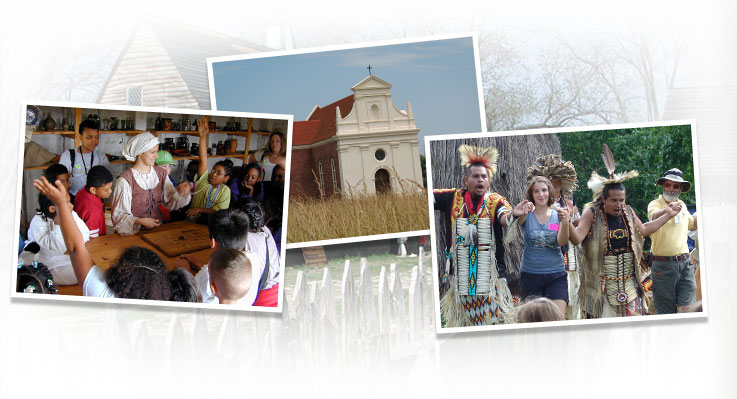Learning Activities
Meet John Halfhead
These activities revolve around the experiences of John Halfhead, one of Maryland’s first colonists who observed and participated in the building of the colony from his arrival in 1634 until his death in 1675. We encourage you to use these materials in your study of Maryland’s colonial beginnings.There are three lessons in the series, each starts with a quick guide for educators.
- John Halfhead, Indentured Servant
- John Halfhead, Plantation Master
- John Halfhead, Citizen of St. Mary’s
In Class Activities:
We invite you to reprint these worksheets for distribution to students. You will need Adobe Readerto open the files.
Count Your Pennies
Students will learn about the different forms of payment in Maryland and design their own coins.
Woodland Indian Houses – Working with Primary Sources
Examine primary source materials in order to understand how historians draw conclusions about the houses used by Woodland Indians in 17th-century Maryland.
Life in St. Mary’s City, ca.1685
Students will gain an awareness of what the city of St. Mary’s City was like around 1685.
Puzzle Pieces
Help students to understand the process of archaeological study and to show them the value of cooperative learning.
Indentured Servants
Research skilled labor positions from the 17th century and compare and contrast them with trades and skills today.
Pig Trial
Using a script based on an actual court case from early Maryland,students will become acquainted with 17th-century “crime andpunishment” and the importance of one’s reputation in the everyday livesof the colonists.
Sweet Bags
Students will learn, through the sense of smell, how herbs could improve everyday life and treat illnesses.
Writing about St. Mary’s City
Students will create short stories based on their observations and experiences at Historic St. Mary’s City.
17th Century Accounting
Students will gain a better appreciation of trade and commerce in colonial Maryland by learning to operate a counter-board, a 17th-century accounting device.
Also available are several online activities for your students.
Students may also want to visit our Research Publications page for more articles.
We welcome your comments and suggestions. Please email Education@HSMCdigsHistory.org or call 240-895-4984.


